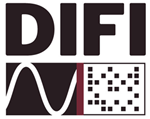PISCATAWAY, N.J., July 29, 2022 (GLOBE NEWSWIRE) — The Digital IF Interoperability Consortium (DIFI), the independent space industry group formed to advance interoperability in satellite and ground system networks, today announced the addition of seven more members, from across industry sectors, including:
CesiumAstro
builds high-throughput, plug-and-play active phased array communications payloads for airborne and in-orbit platforms. CesiumAstro’s full-stack, multi-mission hardware and software products enable a range of commercial and defense objectives.
Communications & Power Industries, LLC
(CPI) is a global manufacturer of electronic components and subsystems focused primarily on communications and defense markets. With a heritage of technological excellence that spans decades, CPI develops, manufactures and globally distributes innovative and reliable technology solutions us in the generation, amplification, transmission and reception of microwave signals for commercial and military applications.
Keysight Technologies
works with innovators to push the boundaries of engineering to design, emulate, test, and deliver breakthrough electronics. Whether you’re looking to improve product experiences, optimize and secure your network, or get a head start on technologies like 5G, 6G, electric or autonomous vehicles, IoT, or quantum — Keysight accelerates innovation with intelligent insights built on the most accurate measurements to reduce risk and speed time-to-market.
Ipsolon Research, Inc.
was founded in August 2008 with an initial long-term contract to develop and improve the analog and digital signal processing system for an airborne obstruction penetrating LIDAR system. Since that time, IRI has focused on hardware, software, and FPGA design for wide range of Software Defined Radios (SDR) and advanced wireless systems. In addition to work for commercial wireless IC manufacturers and major defense companies, Ipsolon also manufactures and sells Chameleon Radio, a wideband small form factor SDR for military communications, anti-jamming, and other advanced wireless signal processing applications. Its mission is to provide the defense wireless community with advanced radio system software and hardware development, early SDR conceptual design, advanced signal processing, and rapid prototyping.
Rohde & Schwarz GmbH & Co., KG
develops, produces, and markets a wide range of electronic capital goods for industry, infrastructure operators and government customers. The independent group is among the technology and market leaders in all its business fields, including wireless communications and RF test and measurement, broadcast and media, air traffic control and military radiocommunications, cybersecurity and network technology.
Quasar Satellite Technologies, Pty Ltd.
an Australian company focused on providing a world-leading ground station service for satellite operators and users. Based on its proprietary Phased Array technology developed at CSIRO, they are building a sovereign space communications solution designed to serve commercial and public sector needs for decades to come. Quasar’s ground station technology will support up to hundreds of simultaneous satellite communications channels and different missions on a single antenna and provide secure satellite data to a broad range of end computing environments, depending on customer needs.
Kepler Communications
provides real-time, continuous connectivity for space, abolishing barriers to make space-generated data universally accessible. Kepler is creating the infrastructure needed to support the current and future needs of the space industry, empowering the human reach outside of earth. Its products keep customers connected to on-orbit assets by enhancing telemetry, tracking, and commanding (TT&C) availability through intersatellite links and significantly increasing capacity for mission-essential data being downlinked back to earth.
“Movement towards system interoperability in space ground systems is clearly accelerating. It is particularly gratifying to see acceptance of the DIFI standard among such a diverse group of companies across all aspects of the user community and the supply chain, from GSaaS providers to component and antenna makers to systems engineering companies.” commented Stuart Daughtridge, Chairman of DIFI and SVP for Advanced Technologies at Kratos.
DIFI members are coming together to support innovation and the digital transformation of space, satellite, and related network technologies through the development of industry interoperability standards. In August 2021, DIFI introduced version 1.0 of its interoperability standard based upon VITA 49, entitled
IEEE-ISTO Std 4900-2021: Digital IF Interoperability Standard
which can be downloaded at the Consortium’s website
. This standard has already been specified in at least one major satellite communications RFI by the U.S. Army to support system interoperability.
About The Digital IF Interoperability Consortium
The Digital IF Interoperability Consortium (DIFI) is an independent, international group of companies, organizations, and government agencies that have an interest in the interoperability of networks and ground systems supporting space-based operations. Launched in coordination with the IEEE-ISTO, DIFI’s mission is to enable the digital transformation of space, satellite and related industries through a simple, interoperable Digital IF/RF standard that accelerates industry transformation from L-Band IF to Digital IF, while discouraging vendor lock-in. The founding members of DIFI include Hawkeye 360, Intelsat Corp. (OTCMKTS: INTEQ), Kongsberg Satellite Services AS (KSAT), Kratos Defense & Security Solutions, Inc. (NASDAQ: KTOS), Microsoft, and the U.S. Navy. To learn more about DIFI Consortium and to view the complete list of current members, visit
www.dificonsortium.org
.
Contact:
Joni Sterlacci
732-562-5464











